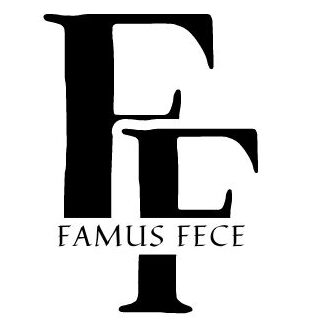The Kennedy Funding lawsuit involves a complex legal dispute between Kennedy Funding Inc. (KFI), a commercial real estate lending company, and Virgil Shelton, the former owner of Rest in Peace Cemetery in Arkansas.
This case highlights issues of contract breach and alleged fraud in the context of high-stakes real estate transactions. At its core, the lawsuit stems from a series of financial arrangements involving the sale of a cemetery, a subsequent bridge loan, and the use of an Estoppel Certificate.
The legal battle raises questions about the responsibilities of lenders, the enforceability of certain financial agreements, and the potential consequences of miscommunication in business dealings. The case gained attention not only for its specific circumstances but also for its broader implications on the commercial lending industry.
It brings to light the need for transparency in financial transactions and the potential risks involved when complex lending arrangements intersect with property ownership and transfer.
What is Kennedy Funding Inc?
Kennedy Funding Inc. is a company that lends money to people who want to buy or develop commercial real estate. Think of them like a bank, but they focus on big property deals. They’ve worked with some well-known companies and have made a name for themselves in this field.
But here’s the thing: Kennedy Funding has gotten into some hot water lately. They’ve been sued a few times because some people think they didn’t play fair. These lawsuits have made people wonder if Kennedy Funding is always honest in their deals.
Read More About: JRK Property Holdings Lawsuit: Allegations Against Real Estate Company
Overview of Kennedy Funding Lawsuit

The big lawsuit everyone’s talking about is between Kennedy Funding and a guy named Virgil Shelton. Shelton used to own a cemetery in Arkansas. He took Kennedy Funding to court, saying they broke their promise and tricked him. A group of regular people (that’s the jury) agreed with Shelton and said Kennedy Funding should pay him over a million dollars.
This case got a lot of attention because it showed how messy things can get when companies lend money for lawsuits. It made people realize we might need new rules to make sure everyone’s being honest, especially when the money’s coming from other countries.
Pajor players in the Kennedy Fundoimg Lawsuit
The main people in this story are pretty simple. On one side, you’ve got Virgil Shelton. He started a cemetery called Rest in Peace way back in 1967. He ran it for 25 years before deciding to sell it and enjoy retirement.
On the other side is Kennedy Funding Inc., the company we talked about earlier. They’re the ones Shelton says did him wrong. There’s also a guy named Willie Acklin who’s important to the story. He bought the cemetery from Shelton but then ran into money troubles. When Acklin asked Kennedy Funding for help, that’s when things started to get complicated.
Evidence in Kennedy Funding Lawsuit
The main piece of evidence in this case was something called an Estoppel Certificate. Don’t worry if that sounds fancy – it’s just a paper that says everyone agrees on certain facts. In this case, it was about how much money was still owed on the cemetery.
Kennedy Funding asked Shelton to sign this paper, saying he’d accept less money than he was originally supposed to get. Another important piece of evidence was the Loan Commitment. This was a promise from Kennedy Funding to lend money to Acklin (the guy who bought the cemetery from Shelton).
The loan was supposed to use the cemetery as a guarantee. But things got messy when Acklin couldn’t pay back the loan, and Kennedy Funding tried to take over the cemetery.
Must Read About: Welcome To Princess Royal Parcel Hub: Your Ultimate Guide To Efficient Parcel Handling
Actual Legal Issues in the Kennedy Funding Lawsuit

The big problem in this case was about broken promises and tricks. Shelton said Kennedy Funding didn’t do what they said they would do in that Estoppel Certificate we talked about. He also said they lied to him and tried to cheat him.
That’s why he sued them for fraud and breaking their contract. At first, the jury agreed with Shelton and said Kennedy Funding should pay him a lot of money – $1,675,000 to be exact. But Kennedy Funding didn’t like this decision.
They said the Estoppel Certificate shouldn’t count because of some old law in Arkansas. They asked another court to look at the case again. In the end, the new court said Kennedy Funding still had to pay Shelton, but not as much – only $675,000. They also said Kennedy Funding didn’t commit fraud after all.
FAQs
Who is the plaintiff?
The plaintiff is Virgil Shelton. He’s the original owner of Rest in Peace Cemetery in Hensley, Arkansas.
Who is the defendant in the Kennedy Funding Lawsuit?
The defendant is Kennedy Funding, Inc. They’re a company that specializes in commercial real estate lending.
What Was the verdict and appeal in the Kennedy Funding Lawsuit?
The initial verdict awarded Shelton $1,675,000 for breach of contract and fraud. On appeal, the judgment was reduced to $675,000 and the fraud charge was dropped.
Final Thoughts
The Kennedy Funding lawsuit sheds light on the complex world of commercial real estate lending and the potential pitfalls that can arise in high-stakes financial transactions. This case serves as a cautionary tale, highlighting the importance of clear communication, transparent dealings, and adherence to contractual obligations in the business world.
It also underscores the need for scrutiny of financial agreements and the potential consequences of misunderstandings or misrepresentations. As the dust settles on this legal battle, the broader implications for the industry become apparent. The case has sparked discussions about the need for greater oversight and regulation in commercial lending practices.
It also serves as a reminder that even well-established companies can face significant legal challenges, emphasizing the importance of ethical business practices and the potential costs of litigation.
As Kennedy Funding continues to operate in the wake of this lawsuit, the industry will likely be watching closely to see how this case influences future lending practices and regulatory measures.













